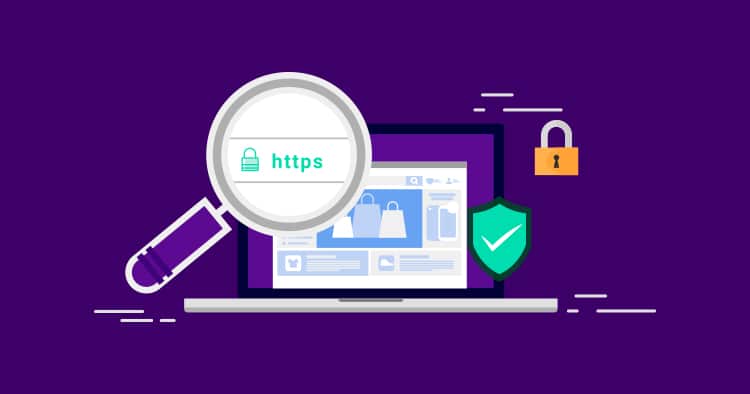Introduction to SSL Certification and Web Security
In the digital age, where cyber threats are rampant, ensuring the security of your website is not just an option, it’s a necessity. The online world is brimming with potential risks, ranging from data breaches to malicious cyber attacks. These threats pose a significant risk not only to the integrity of your website but also to the sensitive information of your users. In this landscape, one of the most effective defenses is the implementation of robust security measures. Among these, SSL (Secure Sockets Layer) certification stands out as a fundamental layer of protection. By encrypting the information exchanged between a user’s browser and your website, SSL certification helps safeguard against data theft and other cyber threats.
SSL certification is more than just a security feature; it is a critical component of establishing trust and credibility in the digital realm. It’s a standard security protocol that creates an encrypted link between a web server and a browser. This encryption ensures that all data transmitted between the two remains private and secure from interception. When a user sees the padlock icon in their web browser, accompanied by ‘HTTPS’ in the website address, it signals that the site is secure and their data is protected.
This introduction sets the stage for a deep dive into why SSL certification, an essential component of web security, is indispensable for your website. We will explore how it not only protects your site but also enhances its credibility, fosters user trust, and contributes to a safer internet ecosystem.
Understanding SSL Certification: The Backbone of Web Security
SSL certification isn’t just a fancy add-on; it’s the backbone of web security. When a website is SSL-certified, it means that the information shared between the user and the site is encrypted and protected from hackers. This includes sensitive information like credit card numbers, personal data, and login credentials. SSL certificates also authenticate the identity of the website, assuring visitors that they’re not on a fraudulent site. This level of security is crucial for building trust with your visitors and is a fundamental reason why SSL certification is critical for any website.
The Risks of SSL Certificate Error
Encountering an SSL certificate error can be more than just a minor inconvenience. It often signals a security issue that could compromise the user’s data. These errors can occur due to various reasons, such as an expired certificate, a mismatched domain name, or a certificate not issued by a trusted authority. Twice in this blog, we’ll emphasize how these errors can deter visitors, damage your reputation, and potentially expose both the site and its users to cyber threats.

GoDaddy SSL Certificate: A Popular Choice
When it comes to choosing an SSL certificate provider, GoDaddy is a name that often comes up. A GoDaddy SSL certificate offers robust encryption, thereby contributing significantly to your site’s web security. However, it’s important to note that the GoDaddy SSL certificate cost can vary based on the level of security you require. Whether you’re running a small blog or a large e-commerce site, GoDaddy offers different SSL certificate options to suit various needs.
The Impact of SSL Certification on SEO and Web Security
SSL certification doesn’t just protect your site; it also impacts your search engine optimization (SEO) efforts. Google, for instance, uses HTTPS as a ranking signal. This means that websites with SSL certification may rank higher in search results, making SSL not only a web security measure but also a crucial SEO strategy. Incorporating SSL certification boosts your site’s credibility and trustworthiness, not just in the eyes of your visitors but also in the eyes of search engines.
SSL Certificates and E-commerce: Safeguarding Transactions
For e-commerce sites, SSL certification is non-negotiable. When customers make purchases, they are entrusting their sensitive financial data to your website. SSL certification encrypts this data, making it unreadable to anyone who might intercept it. This level of web security is essential for protecting your customers and ensuring the success of your online business.
The Cost of Neglecting SSL Certification
Neglecting SSL certification can have dire consequences. Apart from the obvious security risks, it can lead to a loss of customer trust, a decrease in website traffic, and a lower search engine ranking. Considering these factors, investing in SSL certification is not just about enhancing web security; it’s about ensuring the overall health and success of your online presence.
GoDaddy SSL Certificate Cost: An Investment in Security
While discussing GoDaddy SSL certificate cost for the second time, it’s important to view it as an investment in your website’s security and credibility. The cost varies depending on the type of certificate and the level of security required. However, considering the benefits it brings in terms of customer trust and data protection, the investment is well worth it for any website owner serious about web security.
Choosing the Right SSL Certificate for Your Website
Choosing the right SSL certificate involves understanding the different types available and assessing your website’s specific needs. Factors like the level of security required, the nature of the information processed, and the size of your website play a critical role in this decision. Properly securing your website with the appropriate SSL certification is a crucial step in ensuring robust web security.

Conclusion: SSL Certification is a Must for Web Security
The conclusion that “SSL Certification is a Must for Web Security” emphasizes the essential role of SSL (Secure Sockets Layer) certificates in maintaining a secure and trustworthy online environment. Here’s a detailed breakdown of the key points mentioned:
Ensures Web Security: SSL certificates are foundational for web security. They work by encrypting the data transmitted between a user’s browser and a website. This encryption is crucial because it prevents malicious actors from intercepting and reading sensitive information. With increasing cyber threats, such encryption is not just a precaution but a necessity for protecting both the website and its users from potential breaches.
Builds Trust: Trust is a critical factor in the online world. When users see that a website has an SSL certificate, indicated by the HTTPS in the URL and often a padlock icon in the address bar, they feel more confident in using the site. This trust is especially important for e-commerce sites and any platforms where users submit personal information. An SSL certificate acts as a trust seal, assuring users that the site is legitimate and their data is secure.
Enhances SEO: Search engines like Google prioritize secure websites in their rankings. By having an SSL certificate, a website can potentially rank higher in search results. This SEO benefit is a direct incentive for website owners to adopt SSL, as higher search engine rankings can lead to increased traffic, better visibility, and, ultimately, more conversions or sales.
Protects Sensitive Data: SSL certificates are vital in safeguarding sensitive data such as credit card information, personal details, and login credentials. In an era where data breaches are common, protecting such information is not only a security measure but also a legal and ethical responsibility for website owners.
Adapting to the Evolving Digital Landscape: The digital world is continuously evolving, with new threats and challenges emerging regularly. SSL certificates are part of this evolution, providing a way to address current security concerns while being adaptable to future changes and advancements in technology.
Investment in the Future and Security of Online Presence: Obtaining an SSL certificate should be viewed as an investment rather than an expense. This investment is in the security and credibility of the website, which in turn impacts user experience, customer loyalty, and the overall reputation of the brand or business. As the digital landscape becomes more integrated into everyday life, the importance of such an investment only increases.
In summary, SSL certification is far more than a technical requirement; it’s a critical component of a holistic approach to web security and online trust. Its impact extends beyond mere encryption, influencing user trust, search engine optimization, and the overall digital ecosystem’s health and safety. As such, SSL certification is indispensable for any website operating in today’s digital landscape.
Can SSL certification improve my website’s Google ranking?
Yes, SSL certification can improve your website’s Google ranking. Google considers HTTPS as a positive ranking signal, meaning websites with SSL certification may receive a preferential ranking in search results.
What happens if my SSL certificate expires?
If your SSL certificate expires, browsers will start displaying a security warning to visitors trying to access your site. This can erode trust and lead to a decrease in traffic and conversions. Regularly renewing your SSL certificate is crucial for continuous web security.
How does an SSL certificate protect user data?
An SSL certificate encrypts the data transmitted between a user’s browser and your website. This encryption makes it virtually impossible for hackers to intercept and decipher sensitive information, such as credit card details and personal information.


